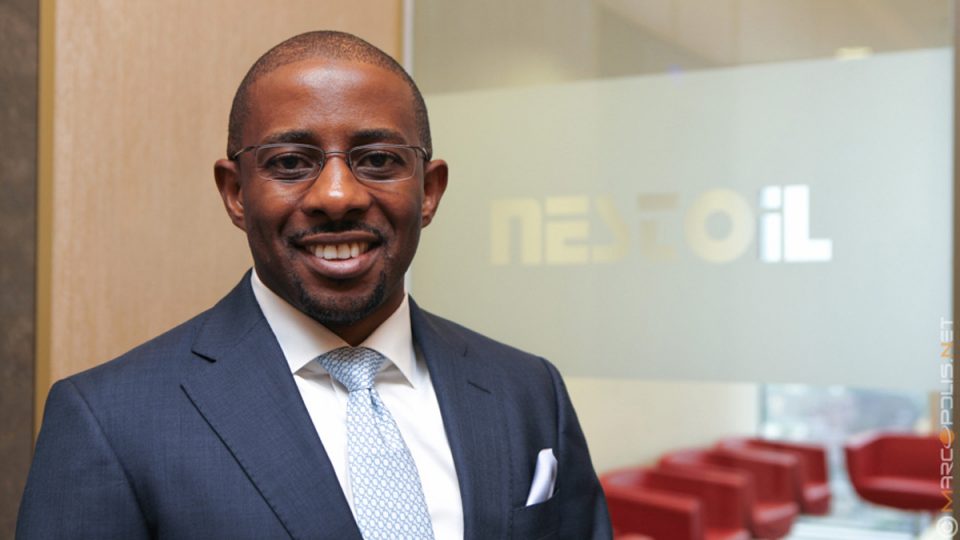`Our pipeline is grossly inadequate to move gas around, say Nestoil boss
Mr Chukwueloka Umeh, the Executive Director of Nestoil Group, said that he country’s gas pipeline are grossly inadequate to move gas around, urged government to invest in gas economy value chain.
Umeh, was reacting to the country’s gas pipeline infrastructure on the sideline of the just concluded Nigerian Oil and Gas conference in Abuja that Nigerian should be a gas economy rather than oil economy.
According to him, “ Nigeria is at the point where we need to decides where we need to go as an economy, our primary income is from oil and gas with large scale tinted towards oil, but the energy focus of the world is changing.
“We must also change, so that we can survive as country today, we use only about 10 per cent of our gas domestically, which large chunk of it is been exported.
“I think this is what causes the economy challenges. We should be a gas economy rather than oil economy. But as you know its other way around, for us to be a gas economy we must make the entire gas value chain work.
“What that means is that the gas producer should be able to make investment required of them to producers, the owners of the pipelines (gas transporters) should also have robust infrastructures to move the gas around the country and it is not just we have today,’’ he said.
Umeh said: Our gas pipeline is grossly inadequate to move gas around, so, we should ideally have pipelines running to very part of the country.
“Every State in this country should have a gas pipeline, beyond that, the actual use of gas in the country is of optimum importance, what I mean at this point, was that we need to have power plants, running of gas in most part of the country.
The Nestoil boss also lamented the government’s inability to find meaningful solutions to Nigeria’s power crises.
He described as “unfortunate” South Africa’s intimidating capacity to generate over 40,000 megawatts of power, which easily dwarfed Nigeria’s meagre 4,000 megawatts.
He notes that Nigeria struggles to meet its electricity needs despite having the reputation as owner of the ninth-largest proven gas reserves in the world.
He went further to point out that South Africa was able to solve its power problem even though it was in no way close to Nigeria as far as potential for power generation was concerned.
He noted that South Africa had been able to produce 40,000 megawatts for the benefit of her 57 million population whereas Nigeria had been grossly inadequate in this obligation to her own citizens.
The Nestoil director foretold a gloomy future for the power sector if the government fails to take productive measures that would allow the forces of demand and supply dictate costs.
Umeh said: We hit 5,000 megawatts a year ago, and people were clapping, they should be crying people should be wiping, as the High Commissioner for Norway spoke on the improve power supply in their country, I was ashamed.
“It’s a travesty that Nigerian is producing 4,000 megawatts every year to serve over 180 million people, meanwhile Norway has three million people but they are producing 36,000 megawatts.
“So, the power industry must work, the petrochemical industry must work, we have the capacity to produce two million metric tonnes of fertilizer in this country on yearly bases but we still import petrochemical we shouldn’t be importing.
“We should be producing using it domestically and also exporting, we have the capacity, so, those part of the value chain must work.
“Distribution companies should be able to make the money required to make investment that they needed to make.
“How is it possible that in a Disco like Enugu that covers the five eastern state they only meter less than a million people, how is that possible and we have more than 180 million people where is the power going.
“But you can’t blame the Discos because they need to be able to make their investment and make their money back, so when the government tell the Discos how much they should sell power.
“They can’t make their money back, that means they can’t invest, so, Discos must be able to sell power at a tariff that allows them to make investment and makes returns.
“Like I said nobody is in business for their good health, people going into business to make a retune, for us to be able to achieve this, the government, must work with private sector as true partners.
“Government must realised that private companies are the ones that are going to catalyzed the industry, they’re the ones that are going to make the required investment.
“They’re the ones that are going to attract the foreign investment for us to grow our energy industry, so, once the distribution s networks are working people are buying power paying for the power they buy, there able to pay the GENCO for the power they produced and sell to them.
“The GENCOs were able to pay the gas transporters owners of that pipelines and the gas producers and the value chains works, only then we can have a true gas economy in the country. And we can do it within 15-years, which in our lives time, we can actually see this happened.




